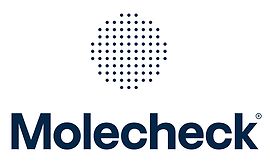Central Auckland, Canterbury, East Auckland, North Auckland, West Auckland > Specialised Primary Health Care >
Molecheck - Skin Cancer Screening
Specialised Primary Healthcare - Skin Cancer Service
Today
Description
At Molecheck doctors with specific training in skin cancer use a new technology called dermoscopy to detect melanoma and other skin cancers. This is the most accurate, thorough and comprehensive skin cancer and melanoma check available and often allows diagnosis before skin cancers can be detected by naked eye or a standard scan.
The doctors at Molecheck use the latest dermoscopy techniques to detect melanoma and other skin cancers at the earliest possible stage. They provide on-the-spot diagnosis - and in some cases on-the-spot treatment. All patients leave the consultation with a clear assessment of any lesions of concern, an understanding of personal skin cancer risk and a plan for any treatment and follow-up that may be required.
Learn more about looking after your skin and skin cancer here.
Purchase a Molecheck gift voucher here
Doctors
Note: Please note below that some people are not available at all locations.
-

Dr John Carter
Specialist GP
Available at 193 Manukau Road, Epsom, Auckland
-

Dr Susan Cornah
Specialist GP
Available at 143 Aikmans Road, Merivale, Christchurch
-

Dr Angela Dowle
Specialist GP
Available at 143 Aikmans Road, Merivale, Christchurch, 3 Norman Kirk Drive, Rolleston
-
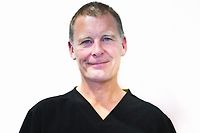
Dr Chris Ford
Specialist GP
Available at 193 Manukau Road, Epsom, Auckland
-
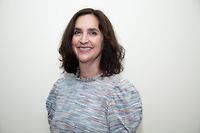
Dr Ali Goldkorn
Specialist GP
Available at 193 Manukau Road, Epsom, Auckland
-

Dr Nicki Hartland
Specialist GP
Available at 143 Aikmans Road, Merivale, Christchurch
-

Dr Lynette Henry
Specialist GP
Available at 193 Manukau Road, Epsom, Auckland
-
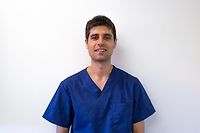
Dr Omeed Howey
Specialist GP
Available at 143 Aikmans Road, Merivale, Christchurch
-

Dr Phil Jacobs
Specialist GP
Available at 143 Aikmans Road, Merivale, Christchurch
-

Dr Angela Jakobsen
Specialist GP
Available at 193 Manukau Road, Epsom, Auckland
-
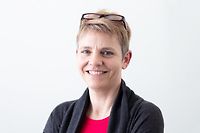
Dr Sari Lester
Specialist GP
Available at 143 Aikmans Road, Merivale, Christchurch
-

Dr Raakhi Mistry
Specialist GP
Available at 193 Manukau Road, Epsom, Auckland
-

Dr Sean Thomson
Specialist GP
Available at 143 Aikmans Road, Merivale, Christchurch
-

Dr Chris Vodde
Specialist GP
Available at 143 Aikmans Road, Merivale, Christchurch
Ages
Child / Tamariki, Youth / Rangatahi, Adult / Pakeke, Older adult / Kaumātua
How do I access this service?
Anyone can access
Contact us
Auckland
Phone (09) 524 1234
Email info@molecheck.co.nz
Christchurch
Phone (03) 355 5089
Email admin@molecheck.co.nz
Referral
Make an appointment
Fees and Charges Categorisation
Fees apply
Fees and Charges Description
Full Examination Adult - $295
Full Examination Child - $150
Family Concession - $230 per person
Short Check Adult - $150
Short Check Child - $85
Corporate Concession - $230 per person
Click here for details
Insurance cover is provided by many insurers (including Southern Cross Insurance) for skin checks of any lesions of concern as well as for skin procedures (cryotherapy or lesion removal) performed by our Molecheck doctors. Entitlement and the amount covered will be in accordance with your policy.
Hours
| Mon – Fri | 8:00 AM – 5:00 PM |
|---|
Services Provided
What to expect The doctor will assess the appearance and surface of the mole or lesion then, using advanced dermoscopy technology, will diagnose and treat lesions where appropriate. Find Frequently Asked Questions (FAQs) about Molecheck appointments and examinations here. Skin Cancer New Zealand has a very high rate of skin cancer, when compared to other countries. The most common forms of skin cancer usually appear on areas of skin that have been over-exposed to the sun. Risk factors for developing skin cancer are: prolonged exposure to the sun; people with fair skin; and possibly over-exposure to UV light from sun beds. There are three main types of skin cancers: basal cell carcinoma, squamous cell carcinoma and malignant melanoma. Basal Cell Carcinoma (BCC) This is the most common type and is found on skin surfaces that are exposed to sun. A BCC remains localised and does not usually spread to other areas of the body. Sometimes BCCs can ulcerate and scab so it is important not to mistake it for a sore. BCCs occur more commonly on the face, back of hands and back. They appear usually as small, red lumps that don’t heal and sometimes bleed or become itchy. They have the tendency to change in size and sometimes in colour. Treatment Often a BCC can be diagnosed just by its appearance. In other cases it will be removed totally and sent for examination and diagnosis, or a biopsy may be taken and just a sample sent for diagnosis. Removal of a BCC will require an appointment with a doctor or surgeon. It will be termed minor surgery and will require a local anaesthetic (numbing of the area) and possibly some stitches. A very small number of BCCs will require a general anaesthetic (you will sleep through the operation) for removal. Squamous Cell Carcinoma (SCC) This type of skin cancer also affects areas of the skin that have exposure to the sun. The most common area is the face, but an SCC can also affect other parts of the body and can spread to other parts of the body. The spreading (metastasising) can potentially be fatal if not successfully treated. A SCC usually begins as a keratosis that looks like an area of thickened scaly skin, it may then develop into a raised, hard lump which enlarges. SCCs can sometimes be painful. Often the edges are irregular and it can appear wart like, the colour can be reddish brown. Sometimes it can appear like a recurring ulcer that does not heal. All SCCs will need to be removed, because of their potential for spread. The removal and diagnosis is the same as for a BCC. Malignant Melanoma This is the most serious form of skin cancer. It can spread to other parts of the body and people can die from this disease. A melanoma usually starts as a pigmented growth on normal skin. They often, but not always, occur on areas that have high sun exposure. In some cases, a melanoma may develop from existing pigmented moles. What to look for: an existing mole that changes colour (it may be black, dark blue or even red and white) the colour pigment may be uneven the edges of the mole/freckle may be irregular and have a spreading edge the surface of the mole/freckle may be flaky/crusted and raised sudden growth of an existing or new mole/freckle inflammation and or itchiness surrounding an existing or new mole/freckle. Treatment It is important that any suspect moles or freckles are checked by a GP or a dermatologist. The sooner a melanoma is treated, there is less chance of it spreading. A biopsy or removal will be carried out depending on the size of the cancer. Tissue samples will be sent for examination, as this will aid in diagnosis and help determine the type of treatment required. If the melanoma has spread more surgery may be required to take more of the affected skin. Samples from lymph nodes that are near to the cancer may be tested for spread, then chemotherapy or radiotherapy may be required to treat this spread. Once a melanoma has been diagnosed, a patient may be referred to an oncologist (a doctor who specialises in cancer). A melanoma that is in the early stages can be treated more successfully and cure rates are much higher than one that has spread.
What to expect The doctor will assess the appearance and surface of the mole or lesion then, using advanced dermoscopy technology, will diagnose and treat lesions where appropriate. Find Frequently Asked Questions (FAQs) about Molecheck appointments and examinations here. Skin Cancer New Zealand has a very high rate of skin cancer, when compared to other countries. The most common forms of skin cancer usually appear on areas of skin that have been over-exposed to the sun. Risk factors for developing skin cancer are: prolonged exposure to the sun; people with fair skin; and possibly over-exposure to UV light from sun beds. There are three main types of skin cancers: basal cell carcinoma, squamous cell carcinoma and malignant melanoma. Basal Cell Carcinoma (BCC) This is the most common type and is found on skin surfaces that are exposed to sun. A BCC remains localised and does not usually spread to other areas of the body. Sometimes BCCs can ulcerate and scab so it is important not to mistake it for a sore. BCCs occur more commonly on the face, back of hands and back. They appear usually as small, red lumps that don’t heal and sometimes bleed or become itchy. They have the tendency to change in size and sometimes in colour. Treatment Often a BCC can be diagnosed just by its appearance. In other cases it will be removed totally and sent for examination and diagnosis, or a biopsy may be taken and just a sample sent for diagnosis. Removal of a BCC will require an appointment with a doctor or surgeon. It will be termed minor surgery and will require a local anaesthetic (numbing of the area) and possibly some stitches. A very small number of BCCs will require a general anaesthetic (you will sleep through the operation) for removal. Squamous Cell Carcinoma (SCC) This type of skin cancer also affects areas of the skin that have exposure to the sun. The most common area is the face, but an SCC can also affect other parts of the body and can spread to other parts of the body. The spreading (metastasising) can potentially be fatal if not successfully treated. A SCC usually begins as a keratosis that looks like an area of thickened scaly skin, it may then develop into a raised, hard lump which enlarges. SCCs can sometimes be painful. Often the edges are irregular and it can appear wart like, the colour can be reddish brown. Sometimes it can appear like a recurring ulcer that does not heal. All SCCs will need to be removed, because of their potential for spread. The removal and diagnosis is the same as for a BCC. Malignant Melanoma This is the most serious form of skin cancer. It can spread to other parts of the body and people can die from this disease. A melanoma usually starts as a pigmented growth on normal skin. They often, but not always, occur on areas that have high sun exposure. In some cases, a melanoma may develop from existing pigmented moles. What to look for: an existing mole that changes colour (it may be black, dark blue or even red and white) the colour pigment may be uneven the edges of the mole/freckle may be irregular and have a spreading edge the surface of the mole/freckle may be flaky/crusted and raised sudden growth of an existing or new mole/freckle inflammation and or itchiness surrounding an existing or new mole/freckle. Treatment It is important that any suspect moles or freckles are checked by a GP or a dermatologist. The sooner a melanoma is treated, there is less chance of it spreading. A biopsy or removal will be carried out depending on the size of the cancer. Tissue samples will be sent for examination, as this will aid in diagnosis and help determine the type of treatment required. If the melanoma has spread more surgery may be required to take more of the affected skin. Samples from lymph nodes that are near to the cancer may be tested for spread, then chemotherapy or radiotherapy may be required to treat this spread. Once a melanoma has been diagnosed, a patient may be referred to an oncologist (a doctor who specialises in cancer). A melanoma that is in the early stages can be treated more successfully and cure rates are much higher than one that has spread.
The doctor will assess the appearance and surface of the mole or lesion then, using advanced dermoscopy technology, will diagnose and treat lesions where appropriate.
Find Frequently Asked Questions (FAQs) about Molecheck appointments and examinations here.
Skin Cancer
New Zealand has a very high rate of skin cancer, when compared to other countries. The most common forms of skin cancer usually appear on areas of skin that have been over-exposed to the sun.
- an existing mole that changes colour (it may be black, dark blue or even red and white)
- the colour pigment may be uneven
- the edges of the mole/freckle may be irregular and have a spreading edge
- the surface of the mole/freckle may be flaky/crusted and raised
- sudden growth of an existing or new mole/freckle
- inflammation and or itchiness surrounding an existing or new mole/freckle.
Disability Assistance
Wheelchair access, Wheelchair accessible toilet, Mobility parking space
Parking
Free patient onsite parking is available at all sites.
Website
Contact Details
193 Manukau Road, Epsom, Auckland
Central Auckland
-
Phone
(09) 524 1234
Healthlink EDI
molechek
Email
Website
143 Aikmans Road, Merivale, Christchurch
Canterbury
-
Phone
(03) 355 5089
Healthlink EDI
molechek
Email
Website
Was this page helpful?
This page was last updated at 11:06AM on September 20, 2023. This information is reviewed and edited by Molecheck - Skin Cancer Screening.

